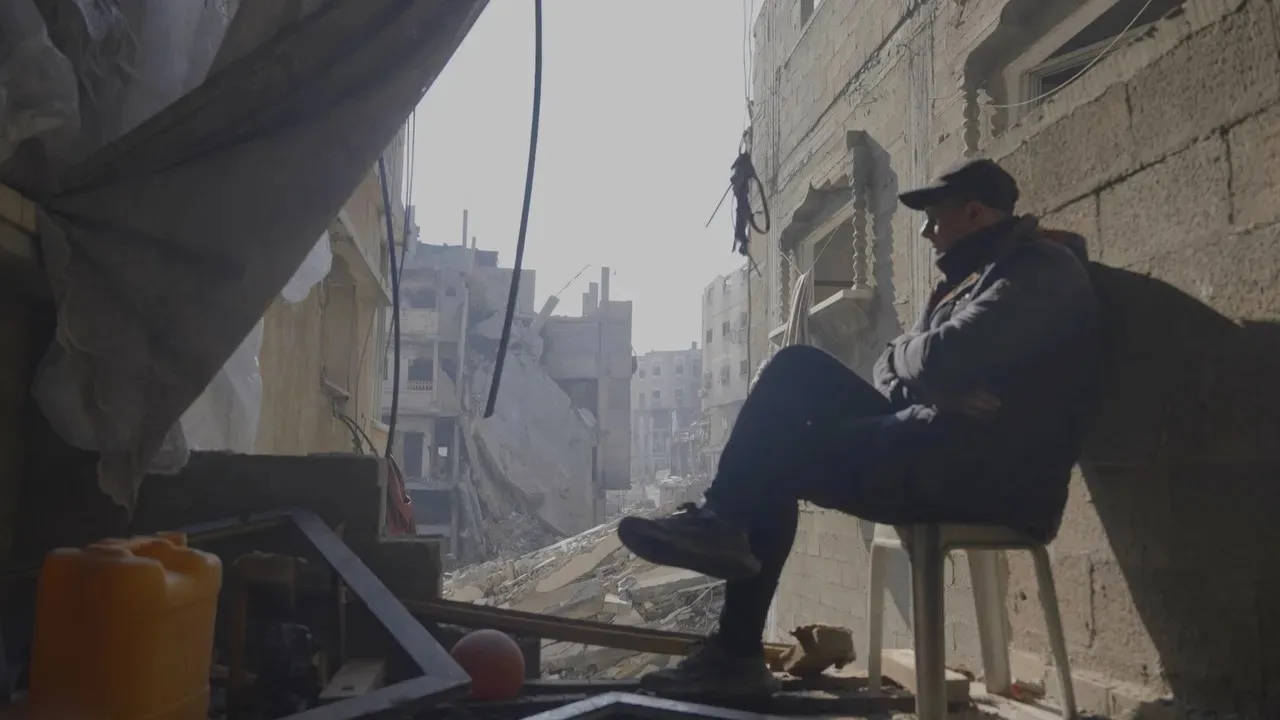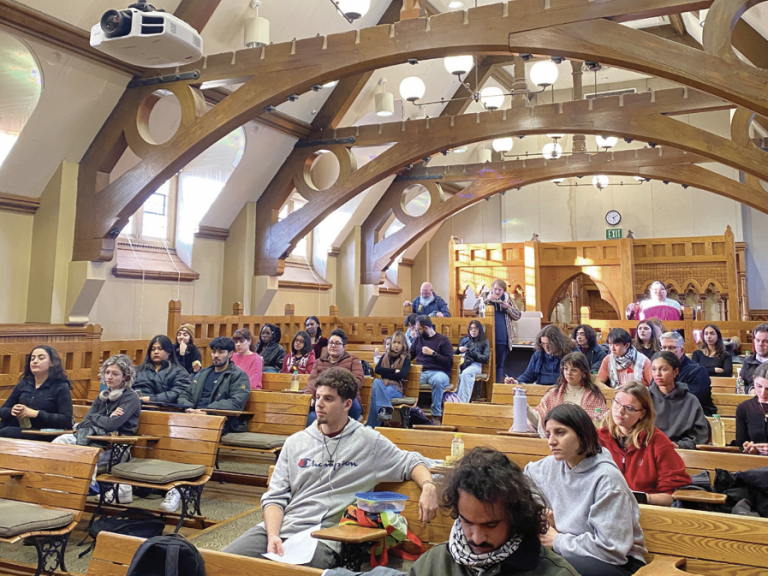Maya Sasaki-George ’28
Contributing Writer
The incessant humming of drones and waves lapping gently at the shore while children play. These two stark images constitute the opening of “From Ground Zero,” a 2024 anthology film showcasing the unique works of 22 Palestinian directors. Cinestudio welcomed this film on Feb. 1, 2025.
Without exception, “From Ground Zero” is a story of grief. The loss of family members, friends, homes, professions, passions, dreams and routines resound throughout each film — grief like a constant specter hanging over Gaza. In “No Signal” (Muhammad Alshareef), a man tries to locate his brother under the rubble of his home but is forced to flee after the bombing resumes. In “A School Day” (Ahmed Al-Danf), a young boy takes his homework down to a cemetery to continue studying beside the grave of his teacher. “Farah and Mirayim” (Wissam Moussa) features a young girl with a terrible phobia of night, describing how every time she wakes she learns of another loss. Films like “Sorry Cinema” (Ahmad Hassouna) and “Out of Frame” (Nidaa Abu Hasna) address the experience of artists forced to give up their passion in favor of pure survival. Again and again, reality is laid bare in “From Ground Zero.” These films do not dress up the truth or seek to hide anything from the audience. In the brutally honest conclusion of “Taxi Waneesa” (E’temad Weshah), the filmmaker addresses the camera directly and admits she cannot continue the creation of her film after learning of the death of her brother.
The most striking film to me was “Soft Skin” (Khamees Masharawi). In this partially animated film, two children describe their mother’s adamance that they have each limb labeled with their name; this way, she says, their corpses can be identified and their “pieces” collected in the event of a bombing. There can be no bleaker portrayal of life under occupation than this — that a mother’s only wish is for her children to have a proper burial. “From Ground Zero” seeks to depict all aspects of Palestinian daily life, giving a voice to a vast range of individuals — men, women, children, parents, artists, teachers, students and more. What it noticeably lacks, however, is a clearly defined enemy, the perpetrator of such violence and destruction. I don’t think the word “Israel” is mentioned once throughout the film’s 115-minute runtime. And why not? Why not put a name to the endless torment wrought against the people of Gaza? Why not use this platform to denounce the occupation, to condemn the government responsible for these constant bombardments? I think it comes down to an idea expressed in “No” by Hana Awad — a filmmaker searches for a story of peace, hope and love during these trying times, rather than one promoting vengeance or continued violence. She finds this message in a song wishing to end all suffering, all unhappiness, to say “no” to whatever keeps a smile from her face. It is with this expression of love, perseverance and the sanctity of human life that the entire film recontextualizes itself. For movie fans, activists and human beings alike, “From Ground Zero” is a fascinating, unique and powerful film, currently available on Apple TV and Fandango at Home.





+ There are no comments
Add yours